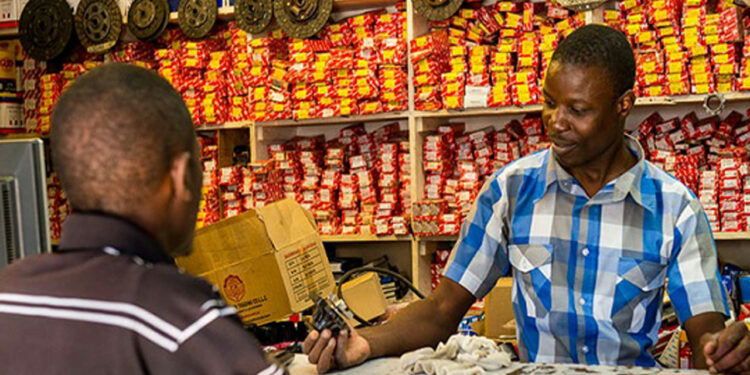Business in Nigeria – Opening Tips for Beginners and foreigners
Opening a firm in Nigeria in 2022 and opening a bank account is the right solution for those planning to open a medium or large business in Africa or looking for a profitable project to invest in.
The Federal Republic of Nigeria is an independent country located in the western part of the African continent and washed by the waters of the Gulf of Guinea. Nigeria is the 1st most populous country in Africa and the leading oil producer. Also popular in Nigeria is the online teen patti game and similar entertainment.
Among its neighbors are Cameroon, Benin, Chad, and Niger.
The best sectors for business in Nigeria
The primary industries are natural resources (oil, coal, tin), agriculture, fisheries, and industry (cotton, shoes, leather, cement, textiles, chemicals, aluminum).
Essential facts about the country
The capital is Abuja. The largest cities are Kano and Lagos.
The national currency is the Nigerian naira (NGN). Official languages are Igbo, Yoruba and English. The state population is more than 201,7 million people. Climate is equatorial/subequatorial.
Participation in international organizations: African Development Bank, ECOWAS, IAEA, OPEC, OIC, WTO, and others.
Main business advantages
Those wishing to register a company in Nigeria remotely expect a relatively favorable business environment, especially:
- Stable economic growth;
- A dynamically developing infrastructure;
- Trade with Spain, France, India, and Brazil;
- Availability of double taxation agreements;
- Available labor resources;
- Opportunity to receive state grants for the development of our agricultural sector;
- Fourteen special economic zones;
- Flexible system of taxation.
Suppose you have chosen to start a business in Nigeria in 2022. In that case, you may consider the best business areas: oil production and processing, food and beverages, light manufacturing, construction, medicine, ITT, transportation, and tourism.
Types of companies in Nigeria
Registering a company in Nigeria starts with choosing the best type of company for your business. If you are going to start a startup or expand your existing business, you will be able to open the following companies:
- Limited Liability Company (LLC);
- Free Zone Company (FZC);
- Limited Liability Partnership (LLP);
- Limited Liability Company (PublicL.C.C);
- Branch Office (B);
- Representative Office (ROO).
When you start a business remotely in Nigeria and open a company account with a bank in Nigeria, it is recommended to select one of the most popular forms of doing business, Free Zone Company (FZC). We also recommend paying attention to Limited Liability Partnership (LLP), which offers comfortable conditions for conducting international business.
Registration Process
Those who intend to register a firm in Nigeria will need to meet the following requirements of the Regulator:
A unique company name (it is mandatory to include the chosen OPF in the ending);
Required number of directors: minimum 1 (legal entities/individuals);
Required number of shareholders: minimum 2 (individuals/companies);
The residence status of the director/shareholder: any;
Secretary presence: required;
The size of the authorized capital of the company: 60,000 USD;
Presence of local physical office: obligatory;
Yearly reporting: yes.
Tax Regime
If you are interested in setting up a company in Nigeria, be sure to study the tax conditions for legal entities, especially:
- The introductory corporate tax rate is 30%. Reduction of the tax rate to 20% is allowed for agricultural, manufacturing and export-oriented companies (first five years) with an annual turnover not exceeding NGN 1 million;
- VAT is 5%;
- Capital repatriation tax: 10%.
How to start a business in Nigeria
For those who are attracted by the idea of starting a business in Africa, namely the company registration in Nigeria, employees ofI.Q.Q DecisionU.K.K are ready to offer such services to accompany them at all stages of the process.
Company registration period: from 6 weeks.
The current economic situation in the country
Rising prices caused by the war between Russia and Ukraine threaten a crisis for companies in Nigeria, warned the Manufacturers Association of Nigeria, Africa’s largest economy. Bloomberg cites the organization’s statement.
The statement said that higher prices for diesel, wheat, and other imported goods, high-interest rates, a shortage of U.S dollars, and accelerating inflation are putting pressure on the country’s manufacturing sector.
Nigeria’s manufacturers depend heavily on diesel, which has doubled in price in 2022. They need it to run industrial equipment due to unstable power supplies from the national grid. The cost of wheat, a critical raw material for producers of flour and several other products, is also skyrocketing.
Companies fear that accelerating inflation, which jumped to 15.9 percent in March, could continue if the war between Russia and Ukraine continues, undermining supply chains, the association said.
The country’s largest company, Dangote Cement Plc, reported a 3.6 percent drop in first-quarter sales to 7.2 million tons from a year earlier, caused partly by cement price volatility in several markets. The situation is exacerbated by the fact that several countries have stopped imports from Nigeria, fearing supply problems due to the war between Russia and Ukraine, company management said in a conference call for investors.
The current situation “requires a solution at the state level and the development of a strategic sustainability plan to avoid the looming economic crisis and shortages that could arise from Russia’s invasion of Ukraine,” the Manufacturers Association of Nigeria said in a statement.

Tips for starting a business for beginners
Starting a business in Africa is more expensive.
Many people think it costs less to start up in Nigeria than in Europe. But unfortunately, it is not the case. The rent here is roughly the same as in a European city, and there is a low “life cost” (the coefficient of expenditure on wages to revenue).
But there are many other essential expenses:
- Every item on the menu has to be certified, which is expensive.
- Equipment has to be brought in from abroad – while a lot can be found in Europe in warehouses, there’s nothing here.
- Costs for the generator: the electricity in Lagos is cut off every four hours.
- Payment for the work of imported managers – not many locals have experience.
- Investment budgets in Nigeria, compared to Europe, are more extensive, but revenues are more minor. Do you think there is less competition? But the mode of specific consumer preferences comes into play.
The question of price is fundamental.
In parallel with in-depth interviews, I analyze well-known brands from Africa to understand what made them famous. And one should also observe people’s behavior.
If you take an average mall with Hugo Boss and Tommy Hilfiger, not particularly budget brands, people with a good income come there. In the food court, there are three ice cream shops. For the most part, people go where it’s cheaper. When they go with the family and buy food, the question of price plays a vital role.
You have to be careful when choosing a franchise.
People in Nigeria are not very familiar with international companies, so a franchise’s brand is not essential. Therefore, it does not affect the choice of establishment. In addition, it is not always possible to replicate the technology of a franchise in another country.
For example, according to the franchise terms, you must supply a piece of special equipment – the management company is sure it is the most reliable. So you wait a few months for it, and then the equipment is delivered, but it quickly begins to break down in the hot, humid climate. And there’s no one here to fix it.
Or another thing – the power goes out in Lagos four times a day. You can’t do business if you don’t have a generator. You have to take into account the fuel consumption of that generator. So there are a lot of specifics. And by and large, it makes no difference whether you start with or without a franchise.

Discussion about this post